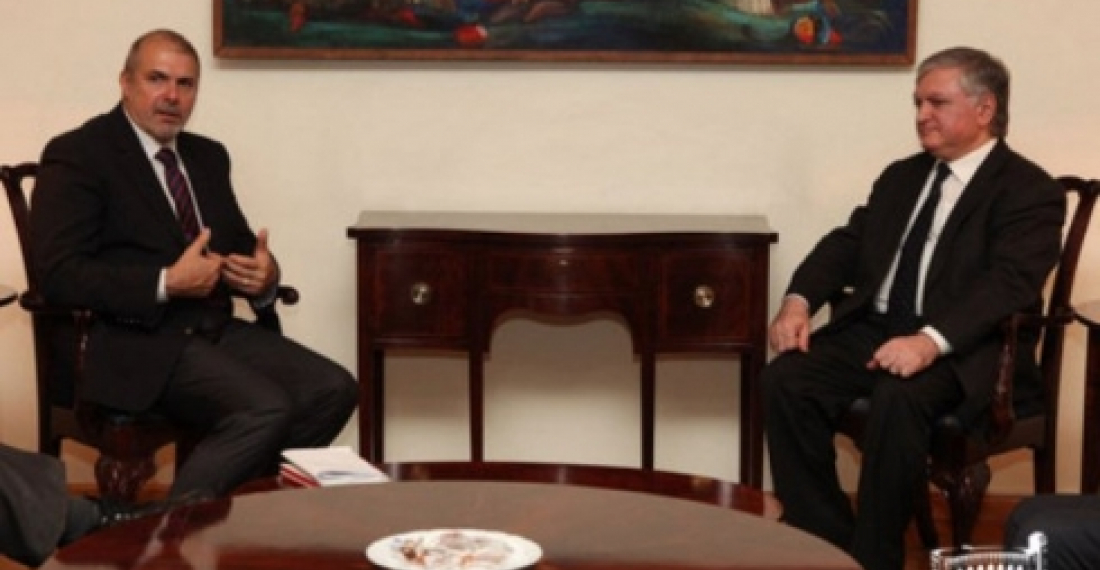- Armenia-Azerbaijan Strategic Expert Platform: Members emphasise the importance of the present moment for the South Caucasus and call for the momentum to be used for the long-term peace and prosperity of the region
- Thursday Interview: Dr. Anar Valiyev
- Food insecurity in Somalia has nearly doubled in the past year
- Türkiye evaluating potential measures in case of a US-Iran conflict
- European Parliament reaffirms support for Ukraine and EU Path
- EU moves ahead with Ukraine loan preparations despite Hungarian block
LEFORT AND NALBANDIAN DISCUSS KARABAKH. The recent Sochi Presidential summit was among the items discussed.

The Armenian Minister of Foreign Affairs Edward Nalbandian and the European Union Special Representative for the South Caucasus and the crisis in Georgia, Philippe Lefort discussed the settlement of the Nagorno-Karabakh conflict, as well as the results of the trilateral Presidential summit held in Sochi last week when the two met in the Armenian capital Yerevan yesterday.
In the course of the meeting a wide range of issues related to Armenia-EU cooperation were also discussed.
In the context of the Eastern Partnership, the sides exchanged views on the negotiations over the Association Agreement, the visa facilitation regime and the launching of the negotiations over the creation of a Deep and Comprehensive Free Trade Area.
source: commonspace.eu with the press Service of the Armenian Foreign Ministry.
photo: Philippe Lefort and Edward Nalbandian at their meeting in Yerevan on 30 January 2012 (picture courtesy of the Armenian Foreign Ministry)








